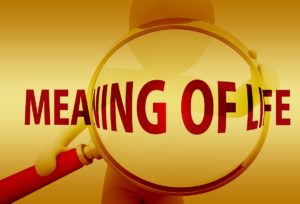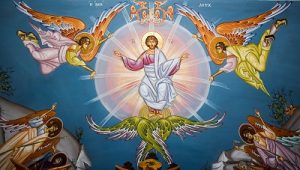
What’s the meaning of life? Or is life meaningless?
What's the meaning of life? Or is life meaningless? Those are questions that lots of people ask at various stages of our life. It's maybe most important though as we get older. We wonder, was it all worthwhile. Or maybe even feel like our life wasn't worthwhile. Could we have ...

What else does God want from us?
What else does God want from us? Since it says what else, obviously this isn't the only thing God wants from us. Further, since this is part two, this is, possibly, the second thing God wants from us. Something that comes after we love God. Any ideas about what it ...

How evil will we become before Jesus returns?
How evil will we become before Jesus returns? The Bible says our thoughts are only evil all the time. And it sounds bad. And yet, it's generic. But when we get right down to the kinds of evil we perpetrate and even pass laws to allow them to continue, I ...

Who cries for you?
Who cries for you? Have you ever thought wondered? Maybe you don't want to even think about it, because you think no one cries for me. But is that really true? ...

Are The Gates of Hell Locked From The Inside?
Are The Gates of Hell Locked From The Inside? The first time I wrote about this, I said yes. The second time, I updated it to say yes, but I thought some Christians can't relate to the concept of not wanting to be with God. This time, many years later, ...

He cut us into pieces. Let’s return to his love.
He cut us into pieces. Let's return to his love. Say what? He has torn us to pieces and injured us? And we should return to him? To his love? Huh? ...

What does God want from us?
What does God want from us? When we pray, we often ask God for all sorts of things. And we're often disappointed if we don't get everything we wanted - NOW! Have you ever thought about it the other way around? What do you think He wants from us? And ...

If guns don’t kill people – people kill people – then …
Guns don't kill people. People kill people. Therefore ... I'm sick of hearing guns don't kill people, people kill people. The logic behind that is so flawed. And the results of people who say it and/or believe it are more and more people dying. People die because people use guns ...

The problem of the forgotten holiday – Ascension Day
What is the forgotten holiday? Actually, maybe not so much forgotten. More like never really celebrated that much. Ever. I call it the "forgotten" holiday as a nod to Francis Chan's book - The Forgotten God. Does that help to identify it? If you live someplace like France, Germany, Norway ...

You can’t be found unless you know you’re lost
You can't be found unless you know you're lost. At first this seems obvious. Or maybe at first it makes so sense at all. Either way, it's important to be found. Which makes it equally important that we know we're lost! ...
